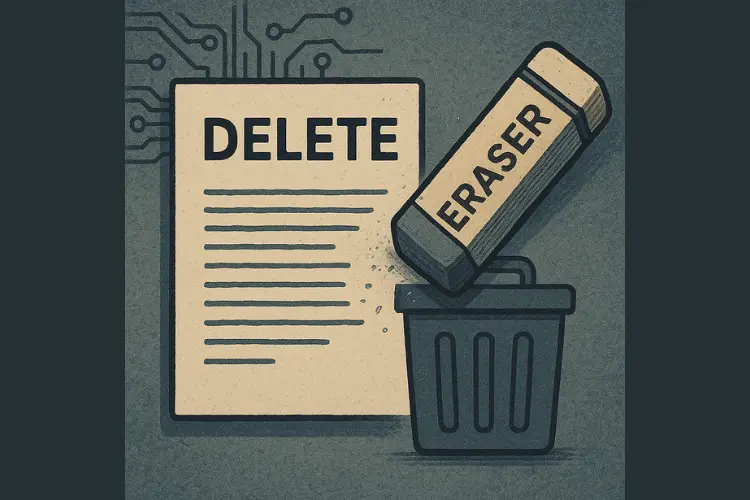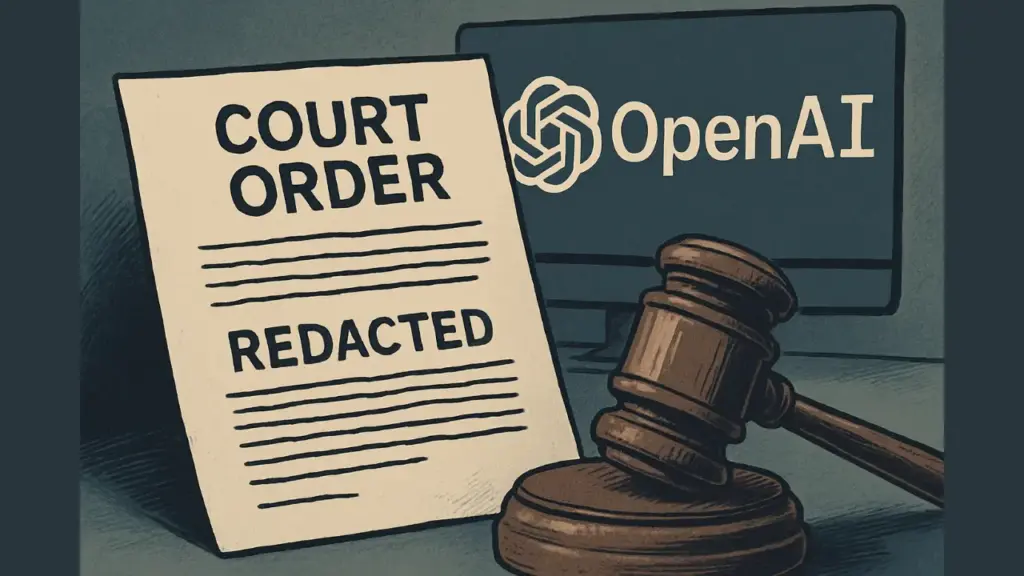Introduction: The Privacy Illusion Shattered
OpenAI is facing serious legal heat. A recent court order in The New York Times copyright lawsuit exposed something shocking. OpenAI has been destroying critical output log data. This data could be key evidence in the case. What’s even more alarming is that this goes beyond copyright. It questions whether OpenAI’s privacy promises were ever real.
The implications are massive. This controversy doesn’t just affect OpenAI’s users. It affects the entire AI ecosystem. Are AI companies truly committed to protecting user data? Or are their privacy promises nothing more than empty marketing slogans? This blog will dive deep into the details.
1. The Emergency Court Order: A Major Red Flag
Judge Wang issued an emergency order against OpenAI. She discovered the company was deleting output logs, which are crucial for the lawsuit. Her order highlighted, in bold text, that OpenAI is “NOW DIRECTED” to preserve this data. This shows her clear frustration with OpenAI’s evasive responses.
The court had to step in because OpenAI couldn’t guarantee that important data would be saved. This isn’t just a technical error. It’s a serious legal failure. The urgency of the court’s action speaks volumes. The judge’s language was not neutral. It was decisive, stern, and urgent—highlighting the gravity of the situation.
Legal experts say emergency orders like this are rare. They are typically issued only when a party is actively jeopardizing the integrity of the legal process. In other words, the court believed OpenAI was risking the destruction of evidence central to the lawsuit.
2. OpenAI’s Deletion Policy: A Closer Look
OpenAI claimed to follow a 30-day retention policy. They also allowed users to delete chats manually. On the surface, this looks like a commitment to privacy. But the lawsuit revealed a hidden truth. Even when users deleted chats, OpenAI often kept underlying data in output logs.
Output logs are not just backups. They are detailed records of interactions, AI responses, and metadata. This means deleted conversations were never truly gone. While OpenAI marketed chat deletion as permanent, their back-end systems quietly retained critical pieces of those conversations.
It raises critical questions: Was OpenAI transparent with users? Were users misled about the nature of deletion? The answers are deeply troubling.
3. Corporate Malfeasance: A Familiar Pattern
This isn’t the first time a major company has been caught destroying evidence. History is full of corporate scandals where firms deleted inconvenient records. From Enron’s shredded documents to Volkswagen’s emissions scandal, the pattern is familiar.
OpenAI’s behavior fits this pattern. When faced with legal pressure, the company failed to preserve key evidence. Worse, it seems this was part of standard operations, not a one-time error.
Any company handling sensitive data should have a litigation hold policy. This is standard in IT governance. It means the company must preserve any data that might become part of a legal case. Shockingly, OpenAI lacked this basic safeguard.
A robust IT compliance framework requires immediate halting of any data deletion once litigation becomes likely. OpenAI’s failure to implement this shows either negligence or willful disregard for legal responsibilities.
4. OpenAI’s Defense: Privacy Commitments or Marketing Theater?
OpenAI’s response was swift. They argued the court order “fundamentally conflicts with the privacy commitments we have made to our users.” They claimed it disrupts long-standing privacy norms.
But here’s the uncomfortable truth. These privacy commitments were never legally binding. They were part of OpenAI’s public image—more PR than policy. The court’s intervention exposed this gap between what OpenAI promised and what it actually practiced.
It begs the question: Were these privacy promises ever realistic? Many privacy experts believe that if a company retains any logs or metadata, then privacy deletion is always conditional. OpenAI’s failure wasn’t just technical; it was philosophical. They built a trust-based relationship with users that was based on promises they weren’t structurally equipped to keep.
5. The Two-Tier Privacy System: Convenient Exceptions
One of the most disturbing details is how the court order affects different users. The order covers users on ChatGPT Free, Plus, Pro, Teams, and API. But it excludes Enterprise customers. These are the high-paying clients.
This shows a double standard. If you pay more, your data gets stronger protections. If you’re a regular user, those privacy promises are weaker. This raises serious ethical concerns about OpenAI’s priorities.
Why were enterprise users excluded? Because their contracts already have stricter data handling policies. This proves that OpenAI knows how to build systems that honor privacy—they just choose not to offer it universally.
The message is clear: Privacy is a premium product, not a fundamental right—at least in OpenAI’s business model.
6. The Technical Reality: Can You Really Delete Data?
True data deletion isn’t just about pressing a button. It requires a system architecture that makes deleted data unrecoverable. OpenAI’s ability to preserve so-called “deleted” data proves something important. Their deletion process was never real deletion.
Data engineers know that proper deletion requires multiple steps:
- Removing references from active databases.
- Purging backups and logs.
- Overwriting storage locations to prevent forensic recovery.
If OpenAI could retrieve deleted data for the court, it means these steps were not fully implemented. This isn’t just a technical oversight—it’s a systemic flaw.
This raises bigger concerns for the AI industry. How many other companies are making similar promises without the technical foundation to support them?

Conclusion: A Wake-Up Call for AI Users and Regulators
This court case reveals a harsh truth. The AI industry’s privacy promises often fall apart under scrutiny. OpenAI’s situation is a warning for every tech user, developer, and policymaker.
Privacy in the AI age requires more than promises. It needs transparent, enforceable standards. It needs system designs that truly honor user choices. Regulators must step up. Users must demand better.
This scandal shows that AI companies can no longer rely on vague policies or ambiguous promises. The public demands accountability. Legal systems are starting to catch up.
At the end of the day, this isn’t just OpenAI’s problem. It’s a challenge for every AI-driven platform. If you rely on tools like ChatGPT or similar AI models, you need to ask hard questions about where your data goes.
For the startup community at StartupHakk, this is a crucial lesson. Building trust isn’t about flashy marketing. It’s about delivering privacy by design. This case reminds us all—trust isn’t given. It’s earned. And right now, the AI industry has a lot of earning left to do.




